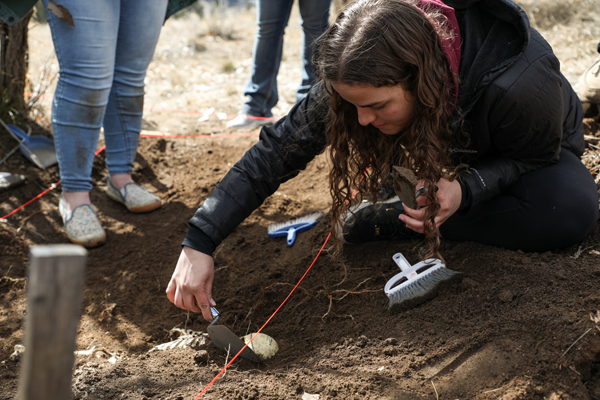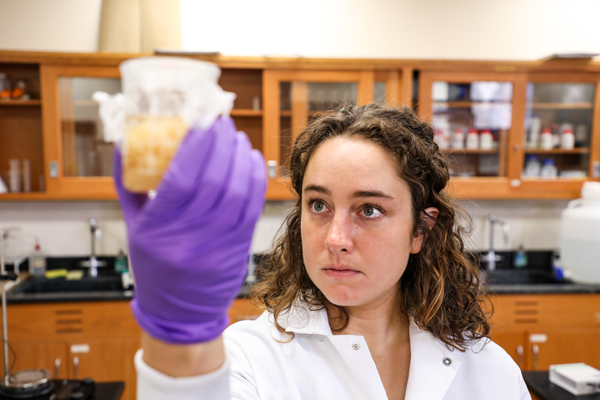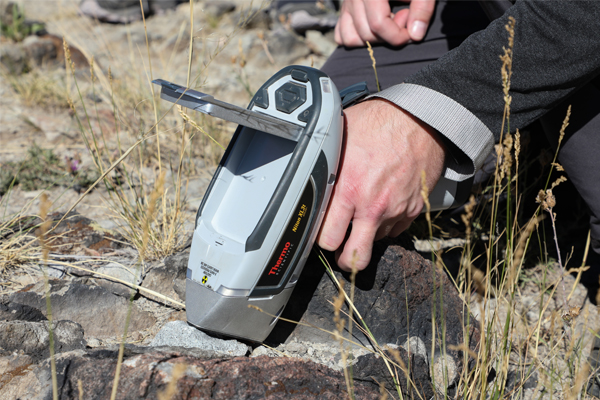
Ecological Restoration, M.S.
This interdisciplinary program will teach students who to perform meaningful work that restores degraded, destroyed or damaged ecosystems.
Why Study Ecological Restoration at Montana Tech?
The M.S. Degree Program in Ecological Restoration has an interdisciplinary approach and is structured to complement and bridge between several sciences and engineering degree programs and a restoration certificate, and to position its graduates for numerous career pathways for which there is a growing demand locally, throughout Montana, nationally, and globally. This master's degree is offered right in the center of the largest active Superfund sites of the nation, giving students access to one of the world's greatest living laboratories for ecological restoration.
World-Class Research Opportunities
Montana Tech ecological restoration graduate and undergraduate students are directly involved in research activities through independent projects or by assisting faculty in important research projects. Students learn ecological restoration in an environment that encourages close student-faculty interaction and take advantage of research and education opportunities provided by Montana Tech’s location near three national parks, wilderness areas, wildlife management areas, and world class trout streams.
Award-Winning Faculty
The Ecological Restoration faculty are actively involved in a wide range of research projects, providing unique opportunities for graduate students to participate by conducting independent investigations or by assisting faculty members. Be mentored by our outstanding faculty.
Spectacular Location
Montana Tech’s location in Butte offers you numerous recreational opportunities, such as hiking and fishing. Butte is centrally located in Montana, giving you access to internships in Bozeman, Helena, and Missoula.
Montana Tech Native-Plant Restoration Project
In January of 2013, Governor Schweitzer approved the restoration plan for Butte Area One that was developed by a local citizen council, the Butte Natural Resource Damage Restoration Council. The restoration plan allocated $1,000,000 in natural resource damage settlement funds to Montana Tech over the next eight years to develop sustainable plant communities on the caps of the Butte Hill over the next eight years. Inspiration for the project came out of federal and state regulations to restore disturbed landscapes with native plants. The goal of this project is to increase native plant diversity to include 75% forbs, which are wildflowers, to sustainable "native plant dispersal islands" on the Butte Hill.
What Is Ecological Restoration?
You will accelerate the recovery of ecosystems that have been damaged or disturbed.
What Kinds of Jobs Do Ecological Restoration Graduates Get?
Today's industry seeks graduates with expertise in mining, energy, transportation, and production. Individuals who also understand how to design and conduct these activities in a sustainable, cost-effective way that minimizes long-term environmental damage and the associated clean-up, reclamation, and restoration costs are highly sought after.
Explore Classes in Ecological Restoration
Students learn about landscape/ecosystem restoration and how to plan industrial activities to avoid long-term ecological damage. They engage in restoring damaged landscapes; learning about permitting and site engineering; and how to reestablish, monitor, and maintain native vegetation.
Explore other graduate programs, related fields, options for funding, and research.
Get semester-by-semester info about ecological restoration courses.
Further your studies with this graduate certificate in Ecological Restoration.

Design a graduate curriculum tailored to your unique academic, creative and professional objectives.

Focus on pollution prevention, water and air quality, waste water treatment, land and soil restoration.

Explore our state-of-the-art triaxial testing lab, underground mine, and more.
We can answer your questions and help you get started.
rpal@mtech.edu
406-496-4725